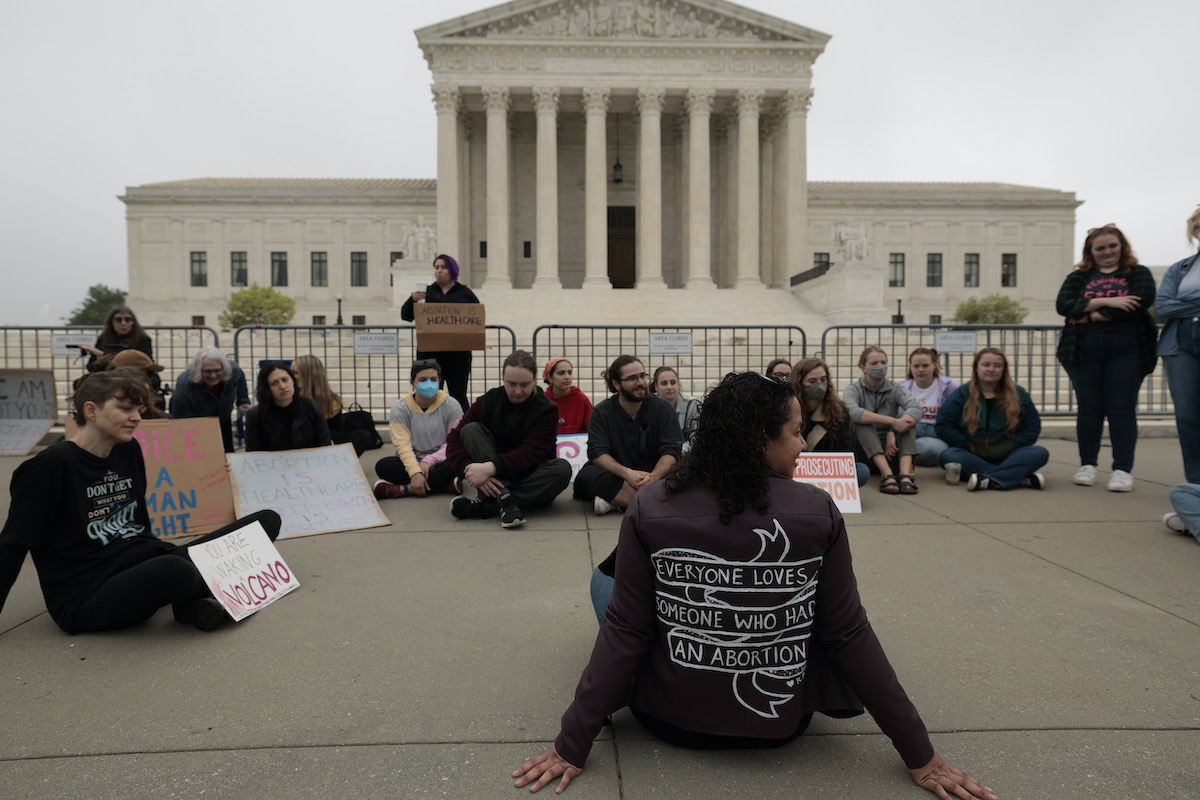Which of Our Rights Is the Supreme Court Going To Trample Next?

After issuing a slew of devastating decisions in the first half of 2022, the Supreme Court will begin its new term in October. When they reconvene, the new court will include Justice Ketanji Brown Jackson. That’s extremely exciting, but it also won’t change the overall makeup in terms of liberal justices vs. conservatives, as she is replacing fellow liberal Stephen Breyer. Which means we can expect more terrible decisions and the further stripping of more fundamental rights to come.
Which rights in particular? Let’s look at what the court has coming up on their docket.
LGBTQ+ discrimination
The court agreed to hear 303 Creative LLC v. Elenis this term, which centers on a website designer who doesn’t think she should have to design sites for same-sex weddings, as required under Colorado’s anti-discrimination laws. This is similar to previous cases like Masterpiece Cake Shop v. Colorado Civil Rights Commission, in which a homophobe baker didn’t want to have to make wedding cakes for LGBTQ+ couples. With 303 Creative, though, the artist isn’t even fighting a specific request, she just wants the right to discriminate in hypothetical future scenarios. (She’s actually reportedly refused to design any websites until SCOTUS guarantees she won’t ever have to do one that isn’t for a straight couple, that’s how opposed she is to aiding and abetting the celebration of LGBTQ+ love.)
Affirmative Action
The Supreme Court agreed to hear a pair of cases this term that accuse universities of discriminating against Asian American students in their admissions practices. The cases are both brought by Students for Fair Admissions, Inc., one against a state school (University of North Carolina) and one private (Harvard).
This is very likely to be the case that kills affirmative action in the U.S.
Voting Rights
With another pair of cases, the court is likely to kill what’s left of the Voting Rights Act. In Merrill v. Milligan and Merrill v. Caster (which are being consolidated under Milligan), a group of Alabama voters and organizations sued Secretary of State John Merrill, as well as the state Senate and House redistricting chairmen, saying the congressional map is drawn to unfairly disenfranchise Black voters.
If/when the court rules to maintain the gerrymandered district map, it would be a major blow to Section 2 of the VRA, which bars the government from enacting any voting rule that “results in the denial or abridgement of the right of any citizen to vote on account of race.”
This will be one of the first cases heard by the court this term, with a sitting slated for October 4.
Indian Child Welfare Act
The Indian Child Welfare Act was passed in 1978 to issue protections for Native American families. It established minimum federal standards for the removal of Native children from their families and grants Native tribes authority in custody proceedings.
As the Native American Rights Fund describes it, the ICWA “protects the well-being and best interests of Indian children and families. ICWA does this by upholding family integrity and stability and by keeping Indian children connected to their community and culture. ICWA also reaffirms the inherent rights of tribal nations to be involved in child welfare matters involving their citizens.”
A case brought in Texas alleged the ICWA is unconstitutional. The Supreme Court will hear it as Haaland v. Brackeen. Given what we know about the Supreme Court’s investment in maintaining a “domestic supply of infants” made available for adoption, this case is chilling.
These are just a few of the major cases the increasingly illegitimate Supreme Court will be hearing this term. We’ll be keeping an eye on things as they unfold.
(image: Anna Moneymaker/Getty Images)
Have a tip we should know? [email protected]
